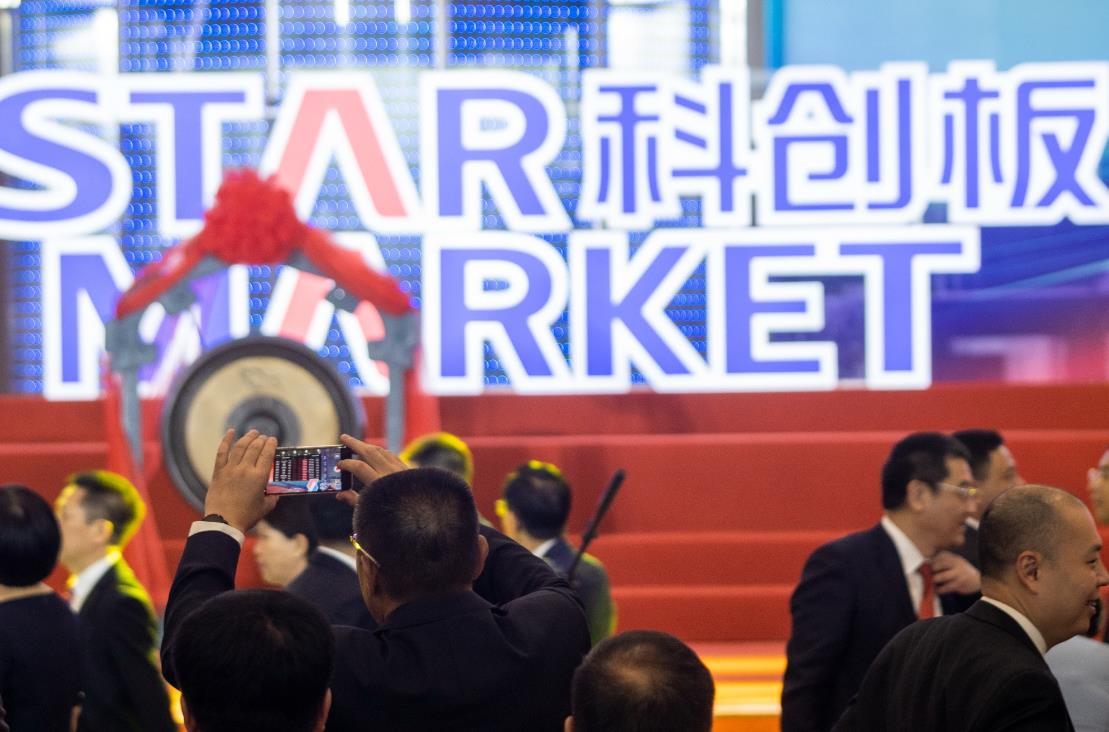Shanghai bourse could be world's biggest IPO market as it turns 30


The Shanghai Stock Exchange (SSE) is on track to rank the first in the world for initial public offerings (IPOs) this year that marked its 30th anniversary, as its Nasdaq-like STAR board eased rules for Chinese tech companies that are seeking listings at home.
"We fully expect the Shanghai Stock Exchange to secure the crown jewel in the global ranking [of IPO venues] by the end of 2020," said Edward Au, managing partner of Deloitte China's southern region, as Shanghai has so much momentum.
The bourse has raised $61 billion so far in 2020 through IPOs, more than triple the total in 2019, according to Dealogic. Globally, by deal volume, the Shanghai Stock Exchange led the way in 2020 year-to-date IPO activity, followed by Hong Kong and NASDAQ markets, according to EY.
Established in 1990, the SSE grew up along with Shanghai's Pudong New Area, a district located east of the Huangpu River that began embracing foreign capital 30 years ago. The SSE witnessed the opening-up and rapid development of China's capital market.
When the SSE started operation on December 19, 1990, only eight companies were listed, known as the "eight old stocks". After 30 years' development, there are 1,766 companies listed on the SSE as of Thursday, with 1,571 on the main board and 195 on STAR Market.
Tech-heavy STAR board counts
Shanghai's STAR board led the way in both deal volume and proceeds of IPOs among other A-share boards, as data from Wind showed. A total of 104 companies debuted on the STAR board in 2020, and its IPO proceeds contributed to about 52.5 percent of the total in all A-share boards.
This year's astonishing growth has been in large part favored by the secondary listing of the chip maker Semiconductor Manufacturing International Corp (SMIC) that is primarily listed in Hong Kong, and that has raised nearly half of the amount raised by the whole STAR market in 2020.
SMIC's IPO, the biggest market debut in the Chinese mainland in a decade, unveils important regulatory changes introduced by the STAR board. With a registration-based listing system, the new board has allowed dual-class shares, lowered entrance barriers, widened circuit breakers, and accepted unprofitable companies.
Companies like SMIC with Hong Kong shares are eyeing STAR board debuts, given higher potential valuations with STAR shares on average fetching prices of over 93 times earnings, stock exchange data showed.
"It's time for Chinese companies to return home for a listing," said Choonshik Yi, a fund manager at UBP Asset Management Asia Ltd. "There's a demand there, and investors are willing to buy stocks at a premium. That makes it a no-brainer for prospective candidates," Yi added.
"In the past, Chinese companies had to go to the US or Hong Kong for public offerings because of barriers to be listed in the Chinese mainland. Actually, the US market knows little about the stories and brands of these companies worth billions of Renminbi, and they are not performing well in the overseas market. So the STAR market makes up for such a gap, and is especially good for tech, TMT and medical companies," Shaw Wang, founder of Unity Ventures and formerly a member of Baidu's founding team told CGTN.
Six Hong Kong-listed companies have raised nearly $11 billion in total from listings on the tech board, according to Dealogic. Theoretically, US-traded companies and others could also take advantage of the STAR market.
The tech board is more accommodating to innovation firms that may not have steady cash flows in the beginning. Based in Pudong, Advanced Micro-Fabrication Equipment China (AMEC) was among the first batch of 25 companies listed on the STAR market on July 22, 2019.




































